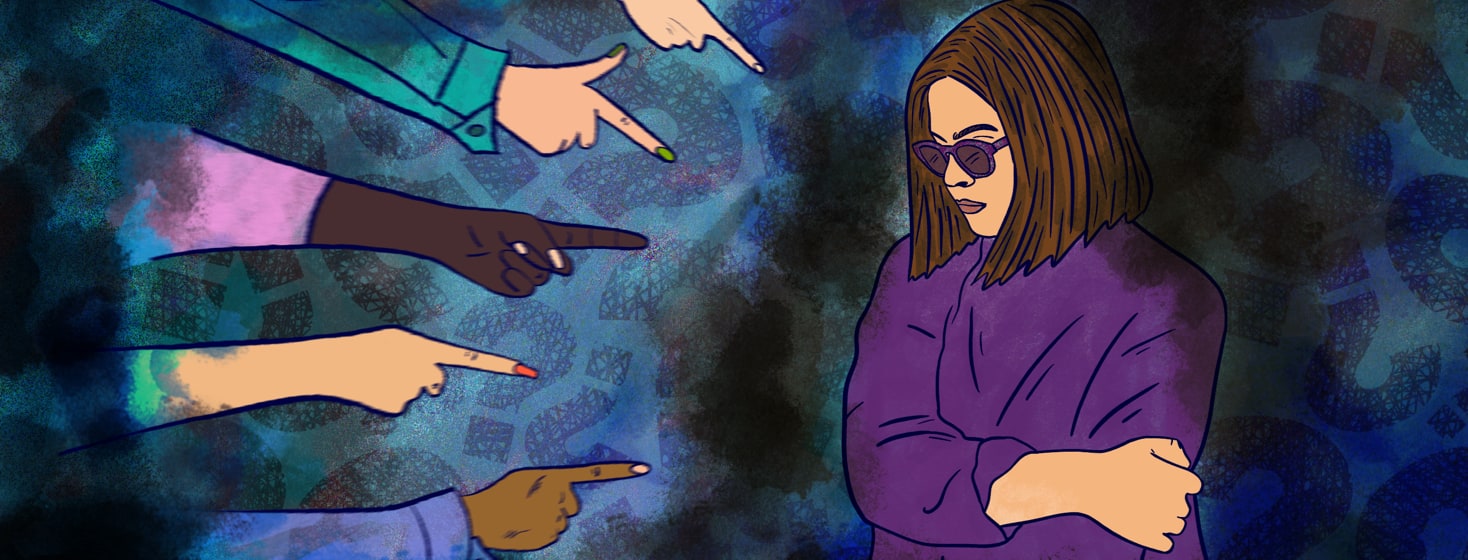Under Attack: Mental Health and Migraine Stigma
"Are you stressed?" How many times has a well-meaning friend or physician said this? I wish there was a magic wand to relieve my stress! This begs the question though, if my life were stress-free, would I be headache-free?
There's stigma around mental health
Mental health is stigmatized. Apparently, it’s OK to have a broken arm, but not experience long-term depression. It’s also understandable to need stitches but not medication that helps anxiety. Even recently, my high school-aged daughter was told in a seminar, “You need to have good sleep hygiene and a healthy diet before being asked to be referred to counseling services at school.” When I experience depression it is like moving a mountain for me to get a warm meal like a bowl of soup. So how am I going to slice and dice fresh vegetables let alone go to a store to buy them? Similar to anxiety, while meditation is a helpful skill to learn, when you are having panic attacks is not the time to learn it!
I have a history of trauma and have struggled to get help with my mental health. The anti-depressants I tried unfortunately came with side effects - worsening depression and suicidal ideation. I was blamed for my inability to tolerate the medications.
Featured Forum
View all responsesThere's a stigma around headache
The term headache has become cliché. Something as simple as a boring meeting, traffic, or an irritating person is “a headache.” Headache simply means pain affecting the head, neck, or face. There are wide ranges in head pain. When I'm stuck in traffic and running late for an appointment, I experience stress. When I say I have a migraine or cluster headache, I’m talking about a disease, not a fleeting sensation. As a person who experiences headaches clinically, it can be difficult for me to say so because of the stigma. The word headache is used in many common experiences. TV shows and the latest magazine articles show headaches as a common excuse to get out of work, social obligations, and the all-time favorite - sex. The photos look nothing like me when I’m having an attack. I’m not a Renaissance woman dramatically lying on the couch with my hand on my forehead.
Prior to 2018, the only preventive medications available were anti-depressants, anti-seizure medications and blood pressure medication. Not only do the anti-depressants have a laundry list of side effects, but so do the anti-seizure medications. I was unable to tolerate the options prescribed. I left appointments feeling like it's my fault I cannot tolerate the medications, which makes me a difficult patient.
What's the compounding effect?
With the stigma of headaches and mental health, there seems to be so much crossover. I have had experiences of going to the doctor about my migraine symptoms. They ask what my triggers are, whether I am getting enough exercise, and whether I am eating healthy. Then they ask me if I’m depressed or anxious. As a patient, I’m left feeling that the migraine is all my fault! It’s no wonder I feel this way! All of their questions point to things I’m doing wrong. I went to get ideas for relief, but instead leave feeling defeated.
Having a chronic pain condition such as migraine disease is a lot to handle, whether you meet the criteria for a mental health diagnosis or are experiencing some more manageable forms of depression or anxiety. Debilitating aspects of headache disease can certainly trigger grief, PTSD, and even suicidal ideation. However, by the time we make it to the doctor, it’s no wonder they may see a mix of mental health symptoms alongside headache disease. It can be hurtful and confusing when we have an appointment to address headache disease but the doctor wants to refer us to therapy for anxiety.
Managing migraine and mental health
I do want to end this on a bit of hope. I have been fortunate to find medical professionals I do trust. They listen to me and work with me to find treatments that work to relieve my headache symptoms. They also have encouraged me with my mental health journey through offering a health coach. I found a therapist that understands chronic pain, headache diseases, and trauma. The better my headache diseases are managed, the better my mental health is managed, the better my quality of life has gotten!
Have you been asked, "Are you stressed?" in response to having a headache attack? If so, how did you respond? How do you feel about the stigma surrounding headache disease and mental health? Has it kept you from seeking help?

Join the conversation